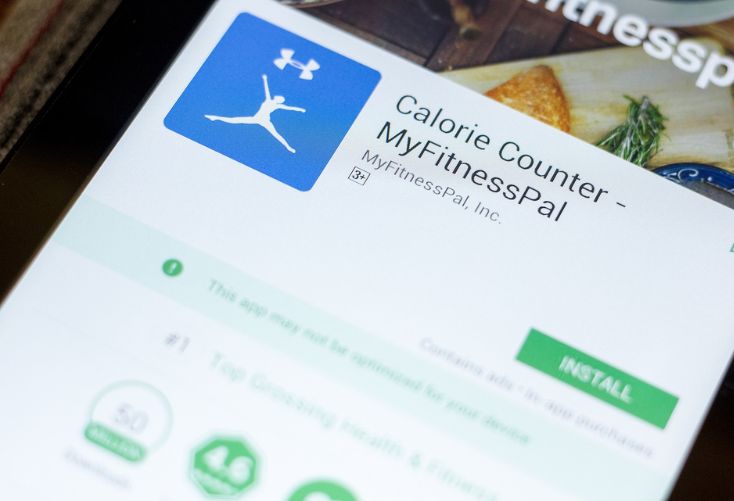- Weight loss is a challenge that increases when most time at work is spent being sedentary.
- Behavioral changes in exercise, diet, and lifestyle inside and outside work — like obtaining adequate sleep, eating more protein, and taking the right supplements — are ways to burn fat at work.
- Getting the right amount of sleep alone isn’t enough to lose weight, but losing sleep is enough to hinder all other efforts.
There are many reasons it is hard to lose weight.
On the one hand, we all have what nutritional scientists call a “body weight set point.” In simple terms, we are genetically predisposed to be a specific weight. So changing it in any direction takes immense effort.
On the other hand, most of our time is spent at work, and most work is done while sitting all day at a computer. Being this sedentary slows our metabolism and reduces the body’s ability to lose fat.
Lifestyle changes both inside and outside of the office can help workers fight against their body weight set point, and the metabolic perils of desk work by burning fat while at work. .
Of course, you’d burn even more if exercise is added into the equation. Still, not everyone has the time for a whole exercise routine, making the following options suitable for most desk workers looking to burn fat while pressed for time.
Here are some science-based strategies for losing fat while at work:
1. Create a calorie deficit
 There’s no getting around that losing weight is centrally determined by burning more energy than you consume.
There’s no getting around that losing weight is centrally determined by burning more energy than you consume.
As stated by the National Association of Biology Teachers, according to the first law of thermodynamics, “eating less than is needed for body metabolism leads to the breakdown of this body fat for energy.”
In other words, when the body isn’t getting enough energy from food to function, it will draw from energy reserves stored in fatty tissue to compensate. Caloric deficits should be moderate so that weight loss is steady; fast weight loss is dangerous and unadvisable.
To create a calorie deficit, plenty of calculators exist online where you can enter your activity levels, age, and other biometric markers to receive an estimated calorie intake.
Once calculated, you shouldn’t exceed this number of calories each day — counting calories is as simple as whipping out a calculator and crunching numbers from food labels and apps such as MyFitnessPal.
2. Take the right dietary supplements
 Supplements can be used in a lot of ways at work. For example, Alpha-GPC can improve cognition and focus, leading to better work performance.
Supplements can be used in a lot of ways at work. For example, Alpha-GPC can improve cognition and focus, leading to better work performance.
Similarly, if your goal is to lose fat while at work, supplements are scientifically proven to be safe, and some exist that could help you achieve this goal.
For example, caffeine is proven to improve work performance, focus, and cognition, and is also known to promote fat loss.
Despite being incredibly popular among workers and typically consumed as coffee, stimulants like caffeine are also known to cause side effects like anxiety, acne, and hypertension, especially when over-consumed.
The best non-stimulant alternative supplement to burn fat while at work is Thai ginseng — also referred to as Kaempferia parviflora.
Thai ginseng is an herb containing methoxyflavones, a series of chemical compounds known to improve various health markers. For this purpose, it can rapidly accelerate calorie burning, encouraging fat loss without added exercise or a reduction of calories necessary.
In other words, if you take Thai ginseng, you’ll be burning calories while sitting in your chair at work.
Thai ginseng is also proven to significantly improve energy levels — making performing well at work even more accessible while enhancing one’s health and wellness.
3. Get 7-8 hours of sleep a night
 The National Sleep Foundation recommends that adults get 7-8 hours of sleep per night to maintain adequate health.
The National Sleep Foundation recommends that adults get 7-8 hours of sleep per night to maintain adequate health.
Good sleep hygiene is vital for maintaining cognitive performance — without it, excelling at your job is unlikely.
However, another reason good sleep hygiene is essential is that without it, your chances of losing fat while at work — even with a calorie deficit and supplementing with Thai Ginsing — will be significantly reduced.
According to the journal Annals of Internal Medicine, sleep hygiene has such a powerful effect on weight loss efforts that “lack of sufficient sleep may compromise the efficacy of typical dietary interventions for weight loss and related metabolic risk reduction.”
Getting the right amount of sleep alone isn’t enough to lose weight, but losing sleep is enough to hinder all other efforts.



 Dr. Gleb Tsipursky – The Office Whisperer
Dr. Gleb Tsipursky – The Office Whisperer Nirit Cohen – WorkFutures
Nirit Cohen – WorkFutures Angela Howard – Culture Expert
Angela Howard – Culture Expert Drew Jones – Design & Innovation
Drew Jones – Design & Innovation Jonathan Price – CRE & Flex Expert
Jonathan Price – CRE & Flex Expert














